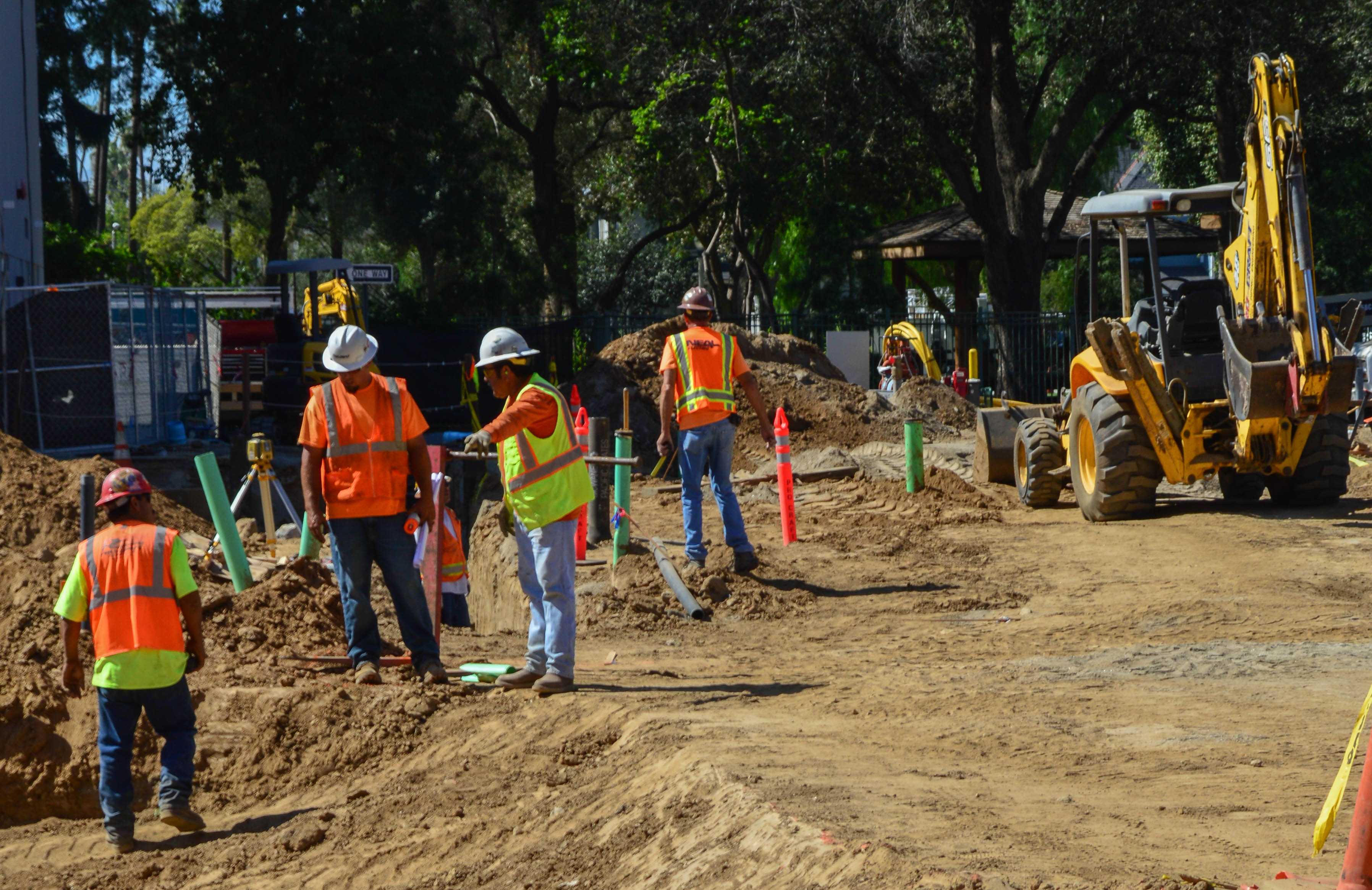Oct. 3, 2014

Photo by John Villanueva | Staff Photographer
Article by Lawrence Manns | Staff Writer
On University Avenue and Market Street, across the street from the downtown Riverside bus terminal, there are builders working around the clock.
Day in and day out, they continue to work, expanding Centennial Plaza, home of the Riverside City College Center for Social Justice and Civil Liberties, and later, the Henry W. Coil and Alice Edna Coil School for the Arts, and the RCC Culinary Arts Academy, the two new additions to RCC.
Though the educational facilities are expected to open in 2016, they have already been honored by the Community College Facilities Coalition for the designs of the building.
Centennial Plaza received the CFCC’s Project in Design Award of Excellence, out of the categories of excellence, honor and merit.
The excellence award focuses on superior design elements and innovative architecture, and requires fulfillment of the five criteria of planning processes: design, community environment, physical environment, and performance. Under these areas fall the building’s sustainability, relationship to infrastructure and environment, fostering community use and context to nature, among others.
Steve Flanagan, the architect, and Chris Carlson, RCCD chief of staff and facilities development were presented with the award at the CFCC’s annual conference in Sacramento on Sept. 9.
The buildings in Centennial Plaza will feature modern technology and original designs that will help to better serve the RCC student body.
“CAA/DO – provides a permanent home for the RCC and provides enhanced facilities to advance the program. CAA/DO consolidates the district offices from five locations; offering greater operational efficiencies and melding of the organization,” said Carlson. “CSA-provides state of the art programming for music performance.”
The Henry W. Coil and Alice Edna Coil School for the Arts, is a music facility that consolidates all of the aspects of music production and performance under one roof. It features a unique, 450 seat concert hall made out of wooden slabs and heavy curtain. These wooden slabs can move around and be removed, as well as the curtain, to provide a desired acoustic effect, and can go from completely wooden, to all curtains, to open air. It will also have a green room, classrooms, a piano lab, practice rooms, lounges for students, a percussion room, recording studios, a choir room suitable for performance, an orchestra room, a film recording studio, two floors of locker rooms, and offices.
The Culinary Arts Academy is a multi-purpose building with the culinary academy on the bottom and district offices on the top. “This building consolidates the district offices from 5 locations, offering greater operational efficiencies and melding of the organization” said Carlson.The building will have windows that reduce glare and insulate the building as most of it is made of glass and aluminum plating. The school will feature full kitchens equipped for demonstrations and teaching. “Demonstration and the other kitchens will have video applications for use of onsite education and broadcasting,” Carlson said.They will also have a bakery, classrooms, offices, and a restaurant and dining room open to the public where the culinary students can cook for the community. There will also be a rooftop area for a garden and events.
These buildings, as well as the Center for Social Justice and Civil Liberties are being furnished with up to date technology. “District offices will have video conferencing. The entire block will be on the state education fiber system, like the three colleges.”
Funding for the project was provided by the recent Measure C, La Sierra fund, and various redevelopment funds.
The city’s infrastructure dates back to the 1800s, providing a challenge for planners and builders to work these buildings in.
“We will overcome any obstacle as we are keeping the goal in mind at all times,” Carlson said. “We have an excellent and engaged team on this project.”





